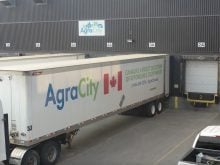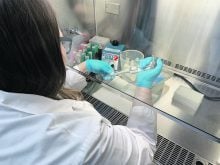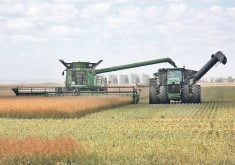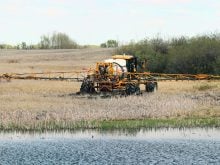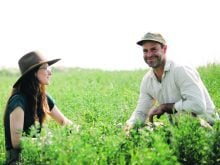Countries increase funding for Agricultural Market Information System and discuss ways to assist moving stored grain
Canada’s agriculture minister said the country has doubled its funding to $250,000 to the Agricultural Market Information System operated by the United Nation’s Food and Agricultural Organization in the wake of Russia’s invasion of Ukraine.
Marie-Claude Bibeau, speaking to reporters after the G7 agriculture ministers’ meeting in Stuttgart, Germany, said all countries discussed how they could help.
“We heard from the Ukrainian minister of agriculture. Since our last G7 meeting in March the situation in Ukraine has worsened considerably, putting global food security at a greater risk than ever,” she said. “G7 ministers remain united in our condemnation of Russia’s illegal and unjustifiable invasion of Ukraine.”
Read Also
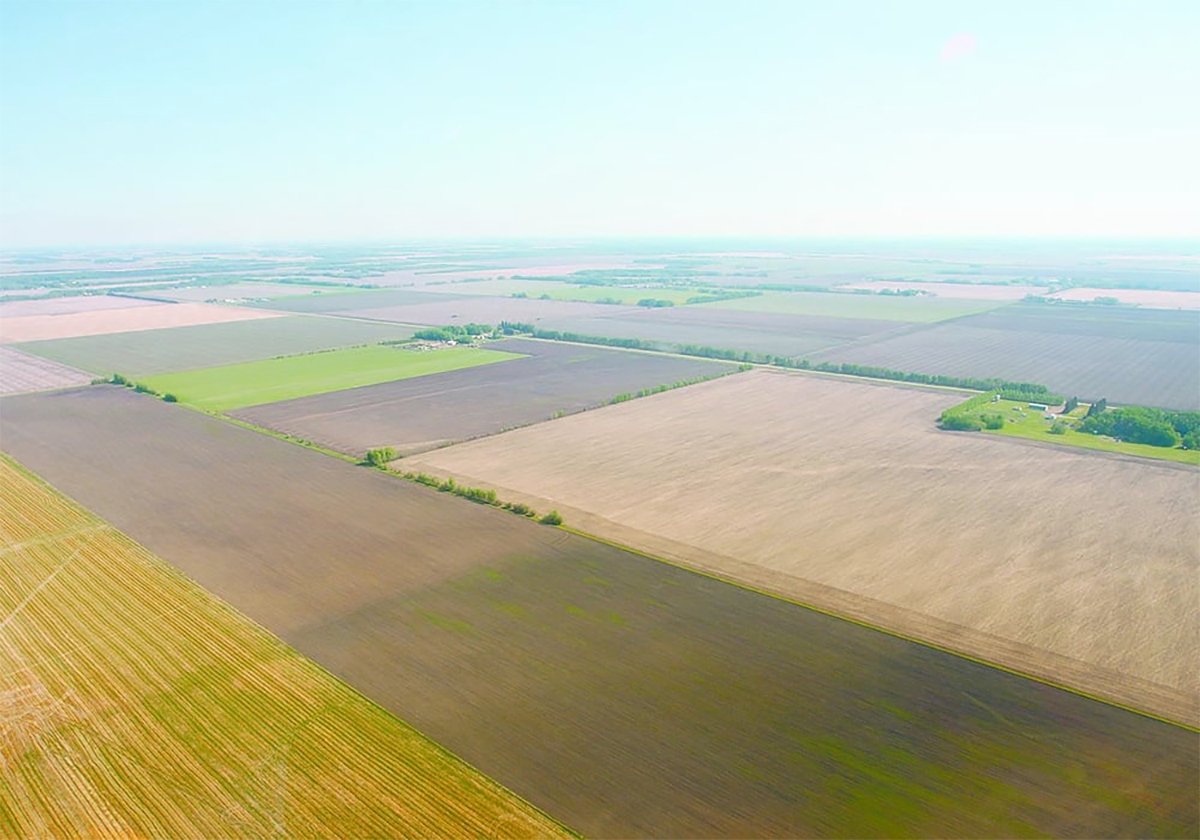
Saskatchewan amends farm land ownership regulations
The Canada Pension Plan Investment Board can no longer own Saskatchewan farmland.
Bibeau said the ministers discussed how to help Ukraine move stored grain, considering that it can’t move through the traditional port of Odessa. Price volatility and global hunger are real consequences of the situation.
She said increasing AMIS funding will provide more information about fertilizer, seed and other inputs to countries that have to navigate markets in this time of crisis. Germany and the United States also boosted their contributions.
Bibeau said there will be other support as well as countries try to move grain out of Ukraine using non-traditional routes. The European Union, for example, is examining how to help with transportation because the rail systems are not compatible. Canada is likely to provide phytosanitary assistance and technical capacity to help Ukraine export its food, mainly grain.
The Canadian government is not likely to get directly involved in marketing Canadian wheat as a result of the disruption.
Producers intend to seed about seven percent more wheat acres this year, indicating they understand the need to meet increasing demand, she said.
Supporting AMIS means increased transparency so industry can target the right consumers, she added.
Bibeau also noted that Canadian grain exporters supply the World Food Program, which provides food assistance.
Some Canadian farmers, in the east particularly, say Canadian sanctions on Russian fertilizer have pushed prices too high for them and are asking for relief.
“I want to just put the emphasis on the fact that we made sure that the vessels, the boats, the fertilizers, did get to Canada for farmers to have access,” she said. “We have made some changes to the Advance Payments Program to allow farmers in general across the country to have the cash flow they need to be able to face the situation right now with the high input costs.”
Bibeau also said the government is looking at options but offered no details.
The ministers discussed global trade disruptions resulting from the invasion and the need for open and predictable trade to make food more affordable and available.
In addition to the situation in Ukraine, the ministers discussed continuing efforts toward sustainable and resilient agriculture and food systems.
“The world must produce more food in a manner that is sustainable — environmentally, economically and socially,” she said. “Canada will continue to work with global partners to ensure trade is open, reliable and focused on science based regulatory approaches that are critical to reaching sustainable food systems.
“Collaboration is a powerful tool and when used properly it can serve as a way to maximize opportunities for Canada that help us continue to protect the environment while increasing the competitiveness of agricultural businesses and our economy.”





